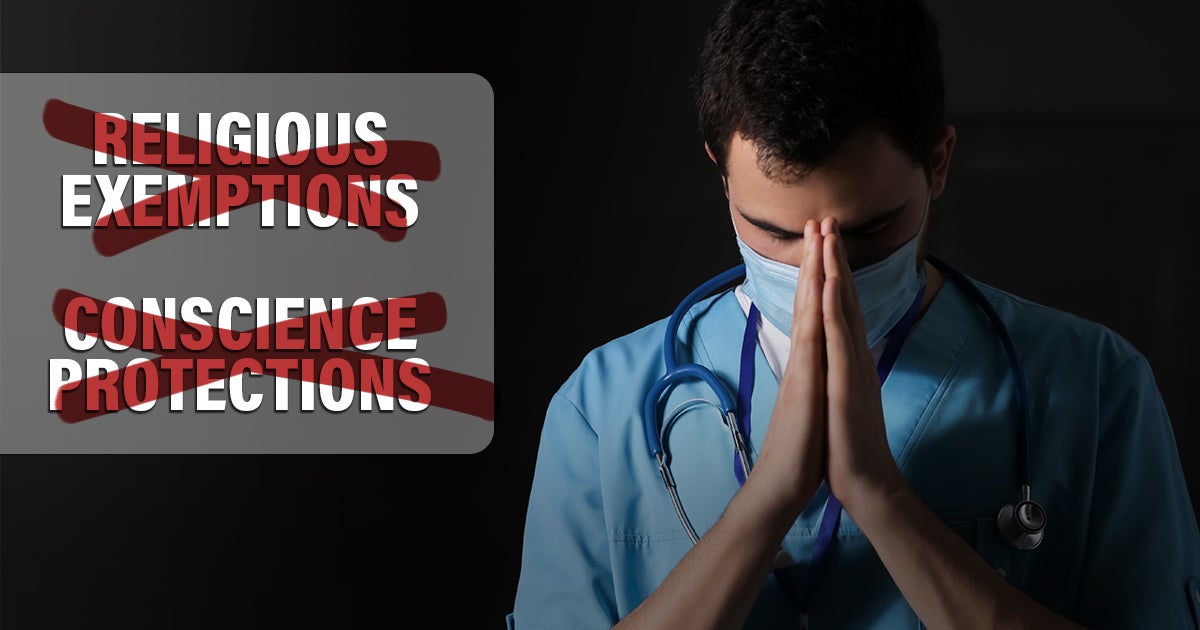
by Jorge Gomez • 5 min read
The U.S. Supreme Court has made it clear that government cannot discriminate against religious organizations.
Just last year, in Fulton v. Philadelphia, the Court handed down a decision in favor of Catholic Social Services (CSS). CSS is a faith-based adoption and foster care agency that holds the religious belief that marriage is a sacred bond between a man and a woman, and only places children with married couples. The city, however, refused to partner with the agency because it would not consider placing children with same-sex couples, even though no such couples had sought that through CSS. When CSS asked for a religious exemption, the city still refused.
The Supreme Court ruled unanimously that it’s unconstitutional for city officials to treat faith-based adoption and foster care agencies unfairly. This decision was a major victory for religious freedom.
But apparently the Biden administration and radical groups did not get the memo. Attacks on these social service organizations continue to surface across the country.
The Wall Street Journal reports “at least 10 cases regarding the ability of faith-based foster care and adoption agencies to operate are now pending in lower courts, some of which have been filed since the Fulton decision.”
Many of these cases are being brought by liberal activist organizations, including Americans United for Separation of Church and State, and Lambda Legal. For example, two cases in South Carolina (Madonna v. HHS and Rogers v. HHS) challenge the state’s decision to form a partnership with Miracle Hill, a faith-based foster agency. Similar ongoing cases include Family Equality v. Azar, filed in New York, and Facing Foster Care in Alaska v. HHS.
In addition to these courtroom battles, the Biden administration has also defied Fulton. Under the helm of Secretary Xavier Becerra, the Department of Health and Human Services (HHS) reversed a rule that protected foster care providers in three states (South Carolina, Texas and Michigan). The Trump administration granted waivers so that faith-based child welfare organizations would not have to violate their religious beliefs or convictions when serving children in need. Becerra revoked those exemptions.
More recently, First Liberty reviewed several proposed changes to HHS regulations and found at least four areas where the Biden administration is targeting key religious freedom protections. These regulatory changes could negatively impact not only foster care and adoption agencies, but also religious employers, charities, universities, schools, hospitals and healthcare professionals.
For example, HHS plans to revise its mandates so that companies—including religious employers—would be required to provide health care coverage that includes gender-transition and gender-affirming cosmetic surgeries. There is also the possibility that this mandate could include a host of expanded services including contraception or other abortion-inducing drugs. Mandating faith-based organizations to cover these treatments would force them to violate their religious beliefs and convictions.
Some predict the new HHS regulations could be announced very soon, possibly April or May.
The prospects do not look promising for religious organizations and people of faith who plan to request religious accommodations or exemptions from HHS mandates.
When HHS rescinded several Trump-era regulations, it issued a statement making its position and policy loud and clear:
“HHS will not condone the blanket use of religious exemptions against any person or blank checks to allow discrimination against any persons, importantly including LGBTQ+ persons in taxpayer-funded programs.”
HHS claimed it would be “returning to its longstanding practice of a case-by-case evaluation of requests for religious exemptions, waivers and modifications.”
The exact language of the new and revised regulations is not yet known. Becerra’s past actions, however, provide some indication of what to expect. His record shows he’s no friend of religious freedom. Instead of broadening protections for religious freedom, HHS policies under Becerra’s direction have done more to narrow them and make it more difficult for faith-based groups to operate consistently with their beliefs.
Rolling back key federal protections for freedom is not the best way to help our nation flourish. When government officials restrict and cut back the safeguards given to faith-based foster care agencies, religious hospitals or other important social service providers, it’s people in need—children, patients, the homeless—who end up losing the most.